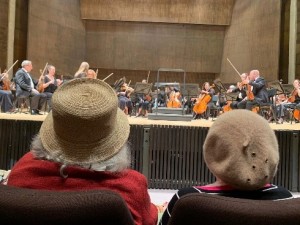 Did you ever feel useless? Like nobody needs you around? We all have such feelings from time to time but they don’t last too long. They dissipate as the first child screams out, “Where are my shoes?” Or when a neighbor knocks on your door in desperate need of your cheesecake recipe. Or when your elderly father calls to say his bulb burned out and he needs you to come over to change it. We feel valued when we offer an opinion and people listen, when we handle a hour-long tantrum and husband whispers, “I left a chocolate bar on the night table. Go relax with a book for awhile. I’ll take over bedtime.”
Did you ever feel useless? Like nobody needs you around? We all have such feelings from time to time but they don’t last too long. They dissipate as the first child screams out, “Where are my shoes?” Or when a neighbor knocks on your door in desperate need of your cheesecake recipe. Or when your elderly father calls to say his bulb burned out and he needs you to come over to change it. We feel valued when we offer an opinion and people listen, when we handle a hour-long tantrum and husband whispers, “I left a chocolate bar on the night table. Go relax with a book for awhile. I’ll take over bedtime.”
We’re needed. We’re valued. The signs are everywhere. But what if there is no husband or neighbor or child? What if she is alone in a nursing home, a lonely holocaust survivor? The caretaker is not interested in her opinions, her thoughts, her dreams. Day follows day with breakfast, lunch and supper delivered to her. She no longer lives independently. No longer make decisions. She begins to wonder if she, a real person, is really there. Bit by bit, deterioration sets in. Cognitive function, the ability to relate to others, even the ability to have an opinion – they all decline.
It doesn’t have to happen.
As people age, they face loss. Loss of their independence, of their faculties, of their standing in the community. Slowly they shrivel, even losing their sense of self. Ezer Mizion’s Golden Age Division has undertaken a new project geared specifically for holocaust survivors in 300 eldercare facilities throughout Israel. Trained professional staff meet with the resident and establish a relationship. They use verbal discussion, pictures and other means of eliciting interest. Interest in what? In whatever is significant to the resident. And they don’t give up. Slowly they plumb the depths of the survivor’s emotional world. A spark becomes ignited. And ever so slowly a dream is born.
Our goal is to revive their spirit, ignite their feeling of self-worth, and encourage them to delve below the dust that has gathered, tap into their dreams and re-discover their self. This will renew their vitality and enhance their sense of self-worth.
N., is a holocaust survivor suffering from dementia. The social worker at the facility in which she resides told us there was no point in even trying to find out from her if she has a wish. Our staff was not ready to give up so easily and went in to visit her. Using their professional skills, they were able to extract from her that in her youth she loved going to concerts and she herself even played some instruments. They offered to take her to a philharmonic concert. Her initial reaction was “You don’t even know me –why would you do that?” “We like to make people happy,” they answered. On the heels of their readily accepted explanation came her next question: “What will I wear?” The classic response of any woman at any stage of life. She was clearly following this conversation, both cognitively and emotionally. From the moment she entered the ambulance to the concert, throughout the concert and her return to the facility, she remained fully engaged. The nursing home staff called the following day to tell us that she was still on a high from her wonderful day! She received an album of pictures of her Big Day. That album will be used by Ezer Mizion staff regularly to help her relive her dream and re-connect to her real self. One wish. One night. But months, years of dignity and self-respect.
Ezer Mizion provides services to over 660,000 of Israel’s population annually in addition to its Bone Marrow Registry which saves the lives of Jewish cancer patients the world over.
